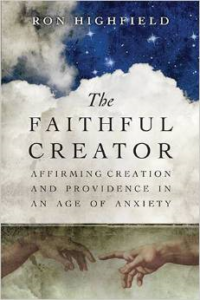Human Freedom–Conceptual and Practical
[dc]F[/dc]reedom is primarily a negative concept. It names the absence of a determining, coercive, or deceptive force that channels human action to a particular end.
The concept of freedom does not contain within itself any evaluation of the ends toward which human action is obligated or desires to move. In other words, the bare concept of freedom contains no information about what is right or good. Freedom is of value only as a means to right or good ends. And freedom is of value to a particular individual only as a means to ends that that individual desires or feels obligated to seek. Hence freedom cannot serve as an end in itself; it is not a freestanding value.
Freedom is openness for action or inaction with other ends in mind. Freedom is meaningless (that is, without purpose as a means) unless the action it permits is directed by compelling ends. But to direct an action to an end is simultaneously to negate other possible actions. Hence freedom cannot be a means to any particular end apart from limits that exclude other possible ends. Interestingly, then, freedom, that is, unlimited openness for any logically and physically possible action, is useless (as a means) apart from limits!
Does the concept of limit, then, contradict the concept of freedom? Of course, unlimited freedom cannot coexist with limits. But we must remember that freedom is not an end in itself. It is a good only insofar as it enables an agent to act toward a good or right end. And freedom is a good to a particular agent only as it provides the conditions under which that agent is enabled to work toward an end that seems good or right to them. Hence an agent’s decision to limit its action to achieve particular good and right ends does not contradict the concept of freedom-as-a-means; it contradicts only the concept of freedom-as-an-end-in-itself.
Human Freedom in Community
As we concluded above, even considered solely as individuals–at least in a world like ours in which not all actions are good or right–to be a value freedom must be limited by the directing power of worthy ends. But we also live in a world with other agents. And other individuals have differing conceptions of good and right and of what ends to seek. Hence arises the possibility of another type of limit on freedom. When conceived as the freedom of multiple particular agents acting simultaneously, freedom may even contradict and limit itself; because the space in which these agents act overlaps. A new problem then arises: how may we harmonize the freedom of many individuals. Perhaps we could dream of a utopia where the desires and consciences of everyone are in complete harmony and everyone could pursue their desires without being limited by others’ pursuit of theirs. But that is not the world we live in. In the world in which we live the freedom of an individual is limited not only by the ends we seek and limits we impose on ourselves but by the freedom of others to do the same.[perfectpullquote align=”left” bordertop=”false” cite=”” link=”” color=”” class=”” size=””]In the world in which we live the freedom of an individual is limited not only by the ends we seek and limits we impose on ourselves but by the freedom of others to do the same.[/perfectpullquote]
To live in our world we must live in community, that is, in some mode of harmony achieved by coming to a common understanding of the good and right ends to which freedom is a means. Through long-term experience we learn how to give and take, compromise, care, share, and otherwise enjoy the benefits of living cooperatively with others as compensation for the limits on freedom of action. These arrangements and rules are institutionalized and codified in tradition and law. The optimum balance of freedom and limits is called justice.
Academic Freedom in General
Just as we can consider human freedom as an abstract concept or as it applies to life in community in general, we can also consider the concept as it applies to a particular sphere of institutionalized social activity. The concept of academic freedom can be considered as abstracted from any particular academic institution. Drawing on our analysis above, we can say without extensive argument that academic freedom is a means to an end and not an end in itself. Whereas the concept of absolute freedom is not self-contradictory in itself, unlimited academic freedom is a contradiction in terms. For the modifier “academic” limits the word freedom. That’s what modifiers do. “Academic freedom” by definition directs–and therefore limits–freedom to serve the end of the academic enterprise, whatever that may be.
What is the end of the academic enterprise? The proper end of academia can be, has been, and (from my perspective) should be a matter of continuous enquiry. Historians of education often point to two master paradigms of education: (1) one focused on traditioning, character building, and moral training. This view may be called the classical paradigm, and it dominated education in the western world until recently. (2) The other paradigm directs its energy toward discovery of new knowledge, critical thinking, and developing skill in research methods. This view is relatively new, and some see its origin in 1810 with the founding of the University of Berlin. It has been called a never-ending, never-arriving “search for truth.” The clash of these two very different paradigms explains much of the contemporary debate about the scope and limits of academic freedom. If the end of the academy is traditioning, character formation, and moral training, academic freedom will be directed to whatever promotes those ends and exclusive of whatever thwarts achieving those ends. Similarly, if the end of the academy is the production of new knowledge and bold researchers, academic freedom will be directed to whatever activities promotes those ends and exclusive of whatever thwarts achieving them. An institution that attempts to work toward both ends will inevitably be involved in constant tension over the scope and limits on academic freedom.
Academic freedom, then, must be conceived as a means to a particular conception of the nature and end of the academic enterprise. The precise articulation of a theory or a policy on academic freedom must be accompanied by an implicit or explicit understanding of the ends of the academy. Discussing academic freedom without also seriously discussing the ends of the academic enterprise will produce nothing but a clash of subjective opinions and wishes determined as much by private interests as by rational discussion. And agreement on the one demands agreement on the other.
Academic Freedom in Individual Institutions
Drawing on our reasoning above, we know that the scope and limits on any coherent theory and policy of academic freedom must be based on a clear understanding of the nature and ends of the academic enterprise. Since there is no universally accepted understanding of the end of higher learning, there are bound to be differences among theorists on the end of the academy. And those different understandings have produced differences among institutions. In turn, those differences produce different understandings of the nature and scope of academic freedom, which will be reflected in policy. A research institution will naturally have a different understanding of academic freedom from that of an institution that conceives of its end as traditioning, character building, and moral training. It makes no sense for one type of institution to criticize the other for its policies on academic freedom. They are living from incommensurable paradigms. Let Providence be the judge of which institution has chosen the better end.
Academic Freedom in Christian Educational Institutions
What can we say about academic freedom in Christian institutions of higher learning? Much of what to say can be easily drawn from the line of reasoning developed above. Christian institutions of higher learning–if the designation “Christian” is not to be a meaningless holdover from another era–conceive their ends as determined by the truth, wisdom, and moral vision of the Christian faith. It makes sense that most Christian institutions of higher learning lean heavily on the classical (traditioning-character building-moral training) view of the end of education. After all, most Christian colleges were founded to defend, explain, and pass on the truth, wisdom, and moral vision of the Christian faith. And the concept of academic freedom that fits an institution devoted to research and production of new knowledge will not fit a Christian institution devoted to the ends I described above. Nor, of course, would it fit with any program of classical education.
In the past, from about 1880 to about 1980, Christian colleges were criticized by the dominant academic culture because they supposedly stifled the disinterested search for truth and the advance of knowledge in deference to their religious commitments. They limited the questions and answers researchers could pursue. Christian colleges were at fault for not accepting the view of academic freedom demanded by the dominant understanding of the ends of the academy. The academic enterprise should be carried on, they contended, according to its own internal rules rather than having to consider external authorities. Recently, however the dominant academic culture has begun criticizing both the Christian understanding and the older value-neutral research understanding of the ends of higher education and consequently it has begun to limit academic freedom in new ways. I am speaking of course of the rise of the political correctness, leftist politics, and wokeness that now dominates many institutions of higher education. The rise of political correctness signals a return to the traditioning and character-forming model of education but with a different tradition to pass on, a different moral vision to inculcate, and a different vision of how character should be formed. These institutions now openly suppress academic freedom in view of their new orthodoxy in ways they imagined Christian colleges did in the past in service to Christian orthodoxy. Measured by a classical liberal view of the social order and its value-neutral understanding of the search for truth the new orthodoxy is illiberal, intolerant, and unscientific. And so Christian institutions of higher learning must fight on two fronts to maintain their liberty to teach and learn according to their understanding of their ends.[perfectpullquote align=”right” bordertop=”false” cite=”” link=”” color=”” class=”” size=””]The rise of political correctness signals a return to the traditioning and character-forming model of education but with a different tradition to pass on, a different moral vision to inculcate, and a different vision of how character should be formed. [/perfectpullquote]

If a Christian institution understands its reason for existence to be producing good human beings as measured by the Christian faith, if that is its non-negotiable end, then it will not accept any view of academic freedom that allows teachers to thwart achieving that end–either by restricting academic freedom to suppress politically incorrect speech or expanding academic freedom so as to undermine the Christian purpose of the college. Each particular Christian institution will have to define the scope and set the limits for academic freedom in its own way and according to its understanding of what activities help it achieve its ends or prevent it from doing so. But one thing is certain: the scope and limits of academic freedom in a Christian college must be determined not by an abstract concept of freedom, not by a general concept of academic freedom, not by a disinterested research ideal of academic freedom, and not by the new limits on academic freedom imposed by the politically correct academic establishment but by a clear and unapologetic understanding of the ends the institution holds dear.
Many of his books are available on Amazon.com at https://www.amazon.com/Ron-Highfield/e/B001JS5TK8


Yes!